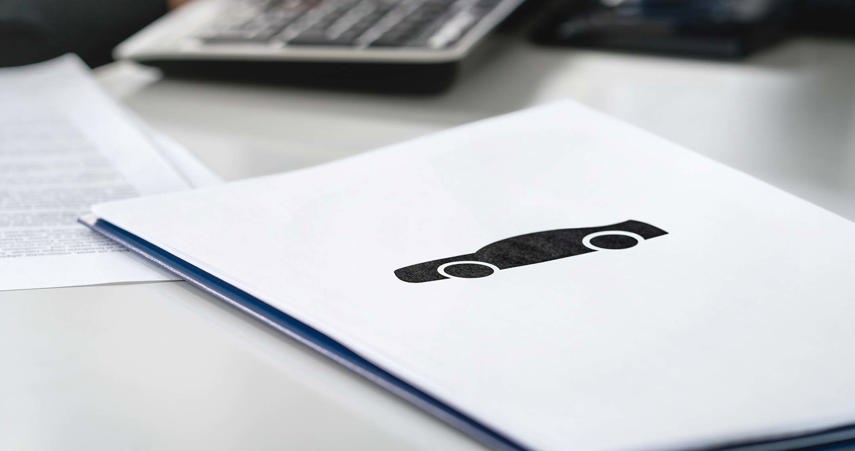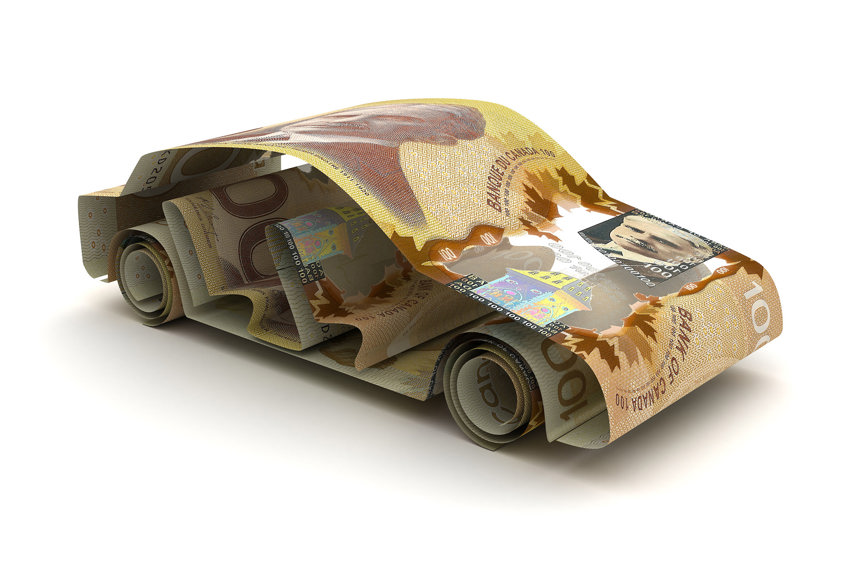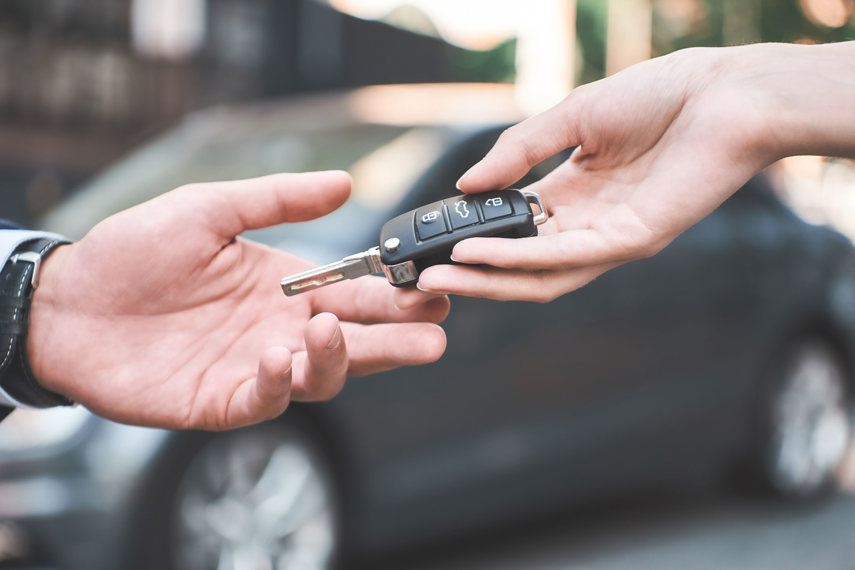Many philosophical questions arise around the topic of death, but some questions are much more practical, like what happens to your car when you die?
Many Canadians are curious about this morbid but important topic, so we have collected some of the most asked questions about cars and death and put them to Ioulia Vinogradova, a Senior Associate with Hummingbird Lawyers LLP, who specializes in wills and estates.
What Happens to My Car When I Die if I Don’t Have a Will?
“When a person dies without a will, they are deemed to have died ‘intestate,’” explains Vinogradova. “The Ontario Succession Law Reform Act sets out who inherits. There is an order of priority based on kinship, which depends on whether the deceased had a legally married spouse and on the number of children (or if a predeceased child, grandchildren) the deceased had at the time of their death. When a person dies without a will, their car, if owned, becomes a part of their estate under the category of personal property.”
“If there are other assets in the estate and probate is required, then when a Certificate of Appointment is issued by the court, the appointed estate trustee would deal with the car as they deem necessary. This may include selling the car (which the estate trustee would be able to do after they are appointed) or transferring the ownership to the appropriate next of kin,” she explains.
“Note that where there is a legally married spouse, in Ontario, that spouse is entitled to all assets up to the initial $350,000. As such, if the value of the total net estate is under $350,000, all will pass to the surviving spouse, including the car. The estate trustee may then transfer the ownership to the spouse after the certificate of appointment is issued.”

Still, according to Vinogradova, there are a lot of different possibilities and factors at play.
“It is impossible to describe all scenarios,” she explains. “I think it is worth focusing on two estates: one where a certificate of appointment is necessary to administer the estate without a will, and one where a certificate of appointment is not required. Generally, the need for a certificate of appointment may be waived where the value of the estate is nominal – maybe a $50,000 in a bank account and a car.”
According to Vinogradova, a certificate of appointment solidifies the status of an estate trustee, giving them the authority to make final decisions and empowering them to gain access to deal with the property of the deceased (like a car). Whether a certificate of appointment is required depends on the type of assets left behind by the deceased.
“But let’s go back to our scenario where there is a legally married spouse and a nominal estate of $50,000 in a bank account held solely in the name of the deceased and a car,” says Vinogradova.
“And let’s assume that the bank agreed to release to the surviving spouse the net of the deceased’s bank account (because lawyers got involved) and with our assistance, the bank has agreed to waive the requirement to obtain a certificate of appointment to release the funds in the deceased’s bank account. In this case, we can assist in preparing an affidavit and a letter to the Ministry of Transportation to seek the transfer of the vehicle to the surviving spouse. I have acted for many clients to assist them with the transfer of a vehicle without a will. Usually, it is either a surviving spouse or a child of the deceased who is looking to transfer the vehicle where there is no will and the estate is nominal.”
What Happens to My Financed Car or Car Loan When I Die?

“This depends on the terms of the loan,” explains Vinogradova. “I had a situation where the surviving spouse did not drive, and we successfully assisted her to have BMW accept an early end to the lease without penalties. There may be circumstances where the lease may need to be continued by the estate or ended with a penalty, or the estate may have the lease assumed by someone else.”
What Happens if Someone Leaves Me Their Car When They Die?
“Where the will makes a special provision for a specific gift, it is up to the estate trustee to contact the beneficiary and to notify them of the gift,” says Vinogradova. “When the car may be transferred depends on whether the administration of the overall estate requires the certificate of appointment to be issued, or whether the vehicle may be transferred without it. If the latter, a lawyer’s involvement is necessary since we prepare the requisite sworn statement and letter to the Ministry of Transportation.”
How Do I Leave My Car to Someone When I Die?
“Through the will by making a specific gift of personal property,” Vinogradova says.
How Do I Make Sure My Car Is Donated to a Charity When I Die?

“The only way to have control over what happens with any of your property is to have a will done,” explains Vinogradova. “In a will, a specific gift to a person or to a charity can be set out. The gift may be specific to the vehicle or a dollar amount or a percentage of the estate, with a direction that the car be sold.”
What Happens to a Jointly Owned Car in a Relationship Where One Person Dies, but They’re Not Legally Married?
“I recently had a situation where the vehicle was owned by two gentlemen in a same-sex relationship,” said Vinogradova, adding that they were considered common law but didn’t always file their taxes as such. “They were not legally married. It is noteworthy that unlike joint accounts with a right of survivorship, a vehicle that is owned by two people who are not legally married will not automatically pass to the second owner. As such, to transfer ownership to the surviving partner, either a certificate of appointment must be obtained or, if the estate is nominal, a sworn statement to a lawyer regarding various issues and a letter to the Ministry of Transportation from a lawyer is required.”
What Happens to My Car Insurance When I Die?
“Technically, when the policyholder passes away, their policy is no longer valid,” explains Anne Marie Thomas, Director, Consumer and Industry Relations at the Insurance Bureau of Canada. “However, insurance companies understand that it can take time to make changes, transfer vehicle ownership, and so on. It’s not expected the day after the policyholder dies, and there is a grace period. Still, it’s very important to contact the policyholder’s insurance company as soon as possible to ensure the vehicle remains insured.”
According to Thomas, the executor of the estate of the deceased should obtain an original of the death certificate and contact the insurance company. We’ll use a fictional character we’ll call Joe to illustrate this case.
“If the car is part of Joe’s estate, the insurance company can make that the name of the insured policyholder,” Thomas explains. Now, Joe’s estate is the policyholder, and the vehicle remains insured.
“It’s important to make sure the vehicle remains insured, even if nobody’s driving it,” explains Thomas. “Again, contact the insurance company as soon as possible. Any time the car is moved or started, it needs to be insured. Be prepared to produce the will and an original of the death certificate.”

If there’s an accident or mishap with an uninsured vehicle, nasty surprises could result.
“The estate should make sure the policy is active and that bank accounts for monthly insurance payments are not closed – which could result in cancellation of the insurance policy. If the family is going to sell the car, you don’t want anyone test driving it while it’s not insured.”
If Joe leaves his car to his daughter, let’s call her Marge, she’d have to apply for a new insurance policy after transferring the car into her name at the Ministry of Transportation.
“Don’t assume the insurance transfers automatically,” says Thomas. “You can never ask too many questions.”
If Joe leaves the car to his wife, Sandra, who is already on the insurance policy, the process is easier.
“If Joe’s wife is a driver on his policy, it’s much easier – the policy just shifts to his wife since the insurance company has her information on file already,” Thomas adds. “If he leaves his BMW to his daughter, she needs to apply for new insurance. Basically, if you’re not on the policy already, you’ve got to apply and start from scratch. After an ownership switch at the [Ministry of Transportation], whoever’s name is on the vehicle ownership is who the insurance policy’s name should be in.”

